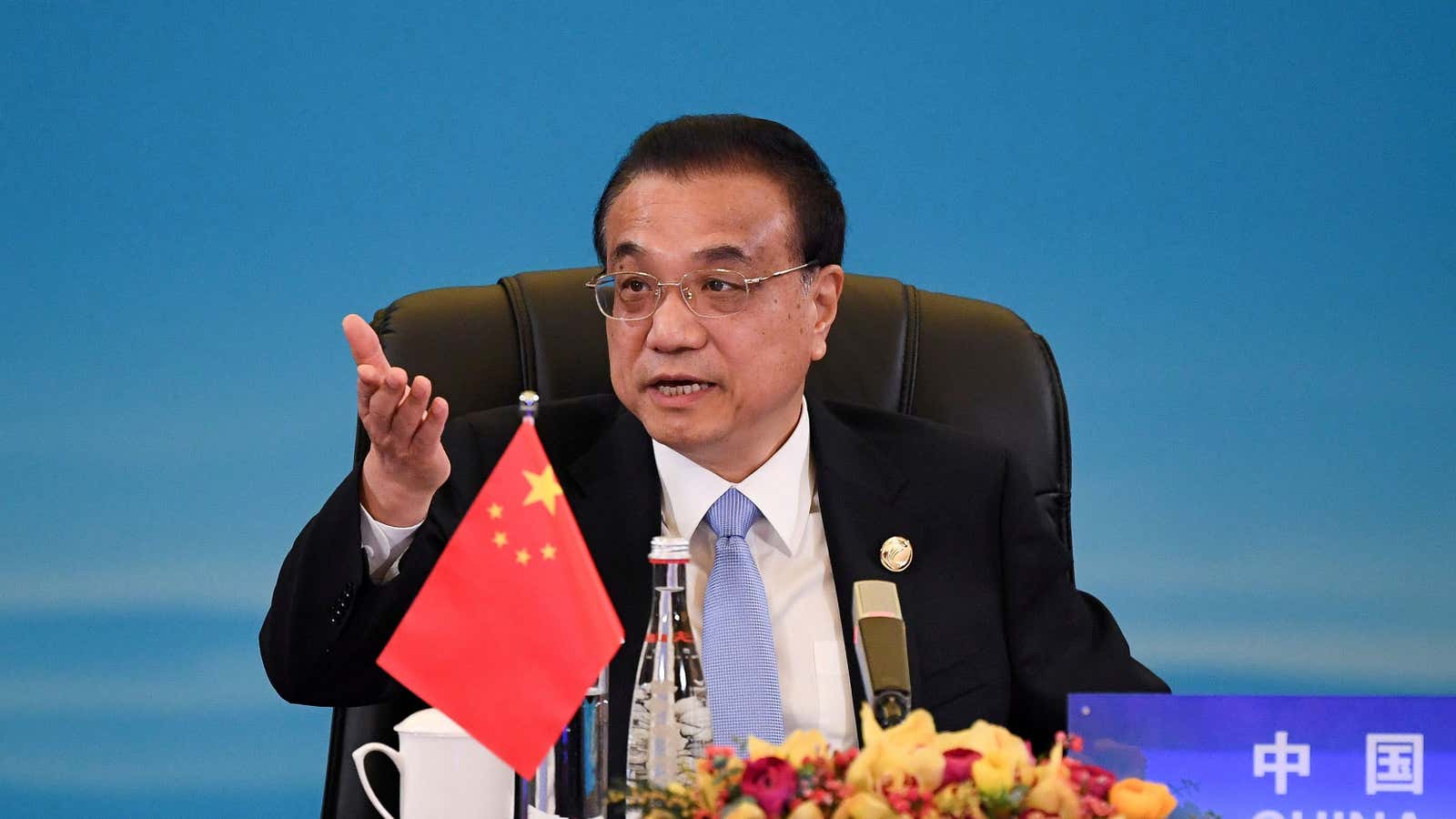Li Keqiang, the premier of China, spoke with UK business leaders today (July 6) in a meeting organized by the China-Britain Business Council (CBBC), a network that promotes the interests of British business in China.
A businessperson who attended the meeting told Quartz that it symbolized how “the Chinese haven’t written off the UK, and are taking the UK and UK business seriously.” Li reportedly spoke about the inevitability of further opening up in China’s economy, and stressed that UK businesses in China would be treated fairly.
It’s believed to be only the second time Li has met with a country’s business community directly, after he attended a similar meeting with US business leaders in April. (He met with business leaders from the 27 countries of the EU in Feb.) It comes at a time of heightened tensions between the Chinese and British governments over issues such as the status of Hong Kong.
In addition to the premier, several Chinese ministers also attended the meeting, including those in charge of foreign affairs, commerce, and industry. The CBBC invited the leaders of 25 major UK companies, including the CEO of AstraZeneca, Pascal Soriot, the chairman of HSBC, Mark Tucker, and the CEO of Jaguar Land Rover, Thierry Bolloré. The meeting reportedly lasted over an hour and has been in the works for weeks as a stand-in for the yearly visit the CBBC would typically plan to China, which has been made difficult due to Covid-19 travel restrictions.
According to the CBBC, Li said: “Britain is committed to multilateralism and free trade, and China shares this commitment. Whatever problems there are, we can always work them out through dialogue.”
In the past year, the UK government banned Chinese telecoms giant Huawei from UK networks, sanctioned some Chinese officials over alleged human rights violations, and invited Hong Kongers to immigrate to the UK in order to avoid a harsh national security law imposed by Beijing in Hong Kong. China has counter-sanctioned some British politicians, academics, and researchers, and called on Britain not to interfere in its domestic politics.
The business community has not been immune to these tensions. But the UK and China are still exploring bilateral economic and trade opportunities. At a recent meeting of the House of Lords International Relations and Defense Committee, which was part of a broader inquiry into the UK’s relationship with China, Graham Stuart, the UK’s minister for exports, said that “China offers more opportunity for the UK economy than perhaps any other market.”
He added that the Chinese economy “will be an engine of global growth, and could play a role in supporting the UK’s economic recovery.”
